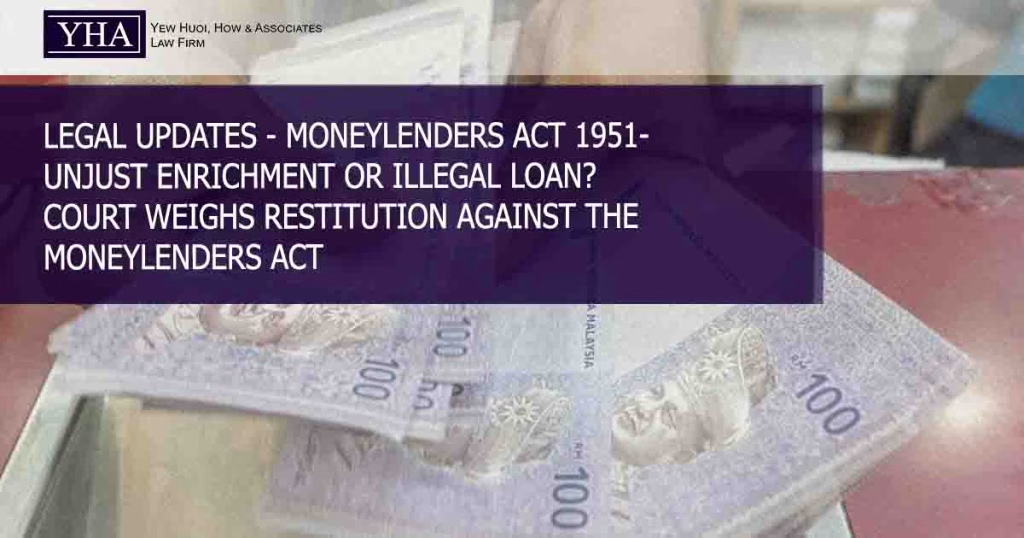1. Summary and Facts
In Golden Wheel Credit Sdn Bhd v Dato’ Siah Teong Din [2021] 12 MLJ, the plaintiff, a licensed moneylender, entered into two loan agreements with the defendant personally for a total of RM3.5 million. Although the loans were documented with the defendant, the funds were in fact disbursed to Instant Bonus Development Sdn Bhd, a company where the defendant was a director and shareholder, for its business purposes. After deducting transaction costs, the net amount advanced was RM3,383,500.
Because the loan agreements failed to comply with the strict statutory requirements under the Moneylenders Act 1951, they were void and unenforceable. The plaintiff then reframed its claim, not under the loan agreements, but instead under the doctrines of money had and received and/or unjust enrichment pursuant to the Contracts Act 1950, arguing that the defendant had benefited from the loan monies.
The defendant applied to strike out the suit on the basis that it was, in substance, an attempt to enforce an illegal and unenforceable moneylending transaction contrary to the Act.
2. Legal Issues
• Whether a licensed moneylender can recover the principal amount under a loan agreement that is void ab initio for statutory illegality through a claim in unjust enrichment or money had and received.
• Whether Sections 66 and 71 of the Contracts Act 1950 apply to a claim arising from a void ab initio loan agreement in contravention of the Moneylenders Act 1951.
• Whether the principle of stultification operates to bar restitutionary recovery in cases of statutory illegality under the Moneylenders Act 1951.
3. Court’s Findings
• The Court allowed the striking out application.
• Section 66 of the Contracts Act 1950 was not applicable because the moneylending agreements were void ab initio under the Moneylenders Act 1951.
• The claim for unjust enrichment failed because the loan sums were disbursed to Instant Bonus Development Sdn Bhd, not to the defendant personally.
• The Court declined to follow cases allowing recovery of the principal under an illegal moneylending contract, holding that permitting such recovery would still amount to enforcing an illegal loan.
4. Practical Implications
This decision affirms several important legal principles governing the rights and liabilities of licensed moneylenders and borrowers, particularly when a loan agreement is void for non-compliance with the Moneylenders Act 1951:
• The lender cannot recover the outstanding principal or interest, not even by reframing the claim as unjust enrichment.
• The stultification principle applies, where the court will not allow any claim that would indirectly enforce an illegal loan, as it would oppose the MLA’s purpose and public policy.

